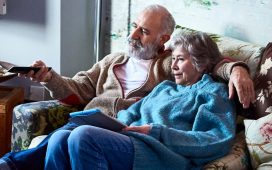Hundreds of thousands of self-employed could be missing out on future state pensions and benefits because of a glitch in the self-assessment system that makes it “not fit for purpose”, according to a top accountancy body.
When an individual files their self-assessment tax return online, a message can appear from HM Revenue & Customs that says they do not need to pay class 2 national insurance contributions. This message appears if the individual has not properly registered as self-employed. If they then fail to make the Nic payments, they lose their full entitlement to a state pension.
In order to receive a state pension, employment and maternity allowances, the self-employed must pay class 2 Nics yearly when submitting their self-assessment tax return. Class 2 Nics, at £156 a year, are payable to the week you reach pensionable age.
With more than 10 million people rushing this month to file their self-assessment tax return, accountants predict that many could lose out.
David Pattinson, a chartered accountant who runs a practice in Nottinghamshire, is concerned that those lower down the income ladder with no professional advice will be most likely to fall victim to this glitch. He successfully corrected the issue when it arose for 25 of his clients in the last year but knows that for many, it’ll go unnoticed.
“The problem will come when people filing their own self-assessments haven’t realised that it’s wrong and will come to claim pensions and find that they haven’t got a full pension because they’ve not been paying the class 2 Nics,” says Pattinson.
“It’s most concerning for people who don’t have accountants who are doing it themselves and will assume that any calculation they get from HMRC must be right – this will impact some of the less well off.”
He is fighting to get HMRC to correct the records of one of his clients, a 60-year-old roofer who has three years’ class 2 Nics missing and HMRC won’t admit any fault.
Pattinson is frustrated that the issue still hasn’t been sorted out even though he has noticed it for years.
“I haven’t seen any change at all. They’re [HMRC] always trying to come up with a reason to blame the individual, saying they weren’t properly registered as self-employed,” he says.
“Nothing’s being done to fix it.”
HMRC claims it is working with “professional bodies and representative groups” to ensure people are aware of the need to protect their state pension through class 2 Nics. However, accountants dispute this and say they still see cases emerging regularly.
The problem first came to light in 2015.
In that year, the collection of Class 2 Nics changed from a direct debit payment system to being part of the self-assessment tax return and many individuals’ payment of the contributions ceased to exist.
HMRC claims that before the changes, letters were sent out to the self-employed who had a shortfall in class 2 Nics. But accountants claim they never heard about or saw such letters at this time. Meanwhile, HMRC says that where an individual has not registered as self-employed, the system is not able to cross reference tax returns with payment of class 2 Nics.
Caroline Miskin, a tax manager at the Institute of Chartered Accountants of England and Wales says: “It is a system that is not fit for purpose. Potentially people could lose all their entitlement to their state pension.
“Our concern is that for people who are not represented by an agent may not spot the fact that they haven’t been charged the contributions and then potentially they run the risk of not noticing until they come to claim benefits which might not be until they reach retirement age and they suddenly find that they don’t have a national insurance record,”
Pattinson believes HMRC should identify every self-employed individual who has filed a tax return but not paid their class 2 Nics, and give them the opportunity to pay their national insurance arrears and get the appropriate credit to their pension.
A spokesperson for HMRC says: “It is important for self-employed taxpayers, or their representatives, to correctly register their self-employment with HMRC. A lack of registration may mean HMRC is not able to correctly collect class 2 Nics.”
HMRC urges individuals to register as self-employed with the CWF1 form, adding: “The registration can be done online before completing a self-assessment tax return and we want to help customers get it right. That’s why we work to educate taxpayers and their representatives through channels including the personal tax account, employer bulletins, and talking points forms and when something goes wrong we put it right.”
HMRC have said where individuals have gaps in their national insurance record, these can be corrected by paying class 2 Nics or by purchasing voluntary class 3 Nics.
Will you get a big bill over child benefit?

Photograph: Stephen Barnes/Finance/Alamy
Are you affected by the child benefit tax charge on higher earners? Many parents filling in their tax return have ended up being handed a big bill by HM Revenue & Customs – but there are simple things you can do to avoid being clobbered.
This all relates to the government’s high income child benefit charge, where child benefit is clawed back via the tax system if either you or your partner have an “adjusted net income” of more than £50,000. For those earning more than £60,000, the charge is 100% – in effect, they receive no child benefit.
Those affected have a choice: carry on receiving child benefit but pay extra tax via self-assessment, or give up the benefit and don’t pay.
It’s probably too late to do much about 2018-19, bearing in mind the self-assessment deadline is 31 January, but there are things you can do right now to reduce your future liability. You need to reduce your adjusted net income, and the best way to do that is to pay more into your pension. Any contributions made into a company or personal pension scheme will reduce the final amount of adjusted net income. For example, you could pay additional voluntary contributions (AVCs) into your occupational scheme.
The most common mistakes on tax returns
Millions of people still haven’t filed their self-assessment tax form– and time is running out ahead of the 31 January deadline.
If you haven’t done your form yet, there’s no time like the present. Dig out your documents right now (online banking apps have made finding the docs so much easier) and give in to the experience. Set aside some time – doing it in a hurry means you are more likely to make careless errors.
Here are a few of the top mistakes to avoid:
• Don’t leave it too late! For most people it will be fine if they crack on now. But if you didn’t do a return last year, you might find time is against you: after you register for self-assessment, you will get a letter that contains your unique taxpayer reference, which you use to enrol. Then you will be posted an activation code so you can sign in and file your return.
• Don’t forget/omit things. People often forget what savings and investments they have, which means they end up leaving out one or more sources of income. For example, in the “interest and dividends from UK banks and building societies” section of the form, you also have to include in box 1 and 2 any interest from UK unit trusts and investment trusts, certain National Savings & Investments products, credit union and friendly society accounts, and on payment protection insurance (PPI) compensation payouts.
• Don’t forget to claim for expenses. According to Which?, there’s a lot of consumer confusion when it comes to expenses claims. Of those Which? members who submit a self-assessment tax return, only 39% said they normally claim expenses, “meaning many could be missing out”. For example, you can usually claim tax relief on work expenses for the cost of cleaning a uniform, provided it’s “recognisable as identifying someone as having a particular occupation” – for example, a police officer. Meanwhile, did you know that nurses and midwives can claim for replacing shoes, socks and underwear? It’s a complex area – to find out more, try litrg.org.uk/tax-guides/employment/employment-benefits-and-expenses.













